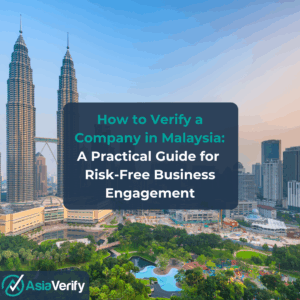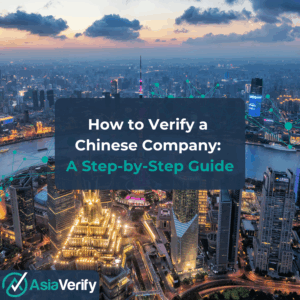Unlock new markets by managing AML/CFT obligations across complex APAC jurisdictions

APAC under increased AML enforcement pressure
Multinational organisations operating in the APAC region are increasingly finding themselves in the crosshairs of regulatory authorities.
China is currently revising its anti-money laundering (AML) regime and legislature as it steps up efforts to curb illicit capital flows that could threaten not just the security of its financial system, but also its international reputation. As part of this broader regulatory effort, the People’s Bank of China (PBOC) has imposed substantial fines on a number of industry giants , including Tencent Holdings, for regulatory breaches related to payment services in mainland China. These fines are related to violations of AML laws, among other infringements.
Enforcement actions and what they reveal about AML failures in Asia
Tencent Holdings’ subsidiary, Tenpay, has been fined approximately 2.99 billion yuan ($413 million). The PBC reports that penalties were imposed on the organisation and several of its senior managers, including the head of the Anti-Money Laundering and Risk Control Department, for breaches in merchant management and payment account management regulations. These violations included failing to perform customer identity identification obligations, neglecting to preserve customer identity information and transaction records, and conducting transactions with unidentified customers or opening anonymous or pseudonymous accounts.
This highlights clear lapses in Tenpay’s Know Your Business (KYB), Know Your Customer (KYC) and Ultimate Beneficial Owner (UBO) procedures. These should be robust enough to accurately verify the identities of users and merchants transacting on the payment platform, along with the source of funds for those transactions, in order to protect the integrity of the payments ecosystem.
Meanwhile, Singapore has seized around S$944 million (US$697 million) in assets from ten individuals involved in a landmark money-laundering probe. The investigation, which began in 2021, was triggered by tip-offs about a group of individuals using forged documents to launder money, leading to their arrests.
Tan Kiat Pheng, Chief Prosecutor of the Attorney-General’s Chambers, highlighted that the significant amounts involved make this one of the largest money-laundering cases ever prosecuted in Singapore. He emphasised that the swift prosecution sends a strong message that Singapore will not tolerate any attempts to flout its laws. Tan assured that firm and swift action will be taken against those who exploit the system to launder illicit gains or commit fraud. He added that Singapore will continue to work closely with law enforcement agencies and regulators to safeguard its reputation and integrity as a global financial hub.
Another significant financial misconduct case has been unfolding in Hong Kong, where the Hong Kong Monetary Authority (HKMA) has fined DBS Bank’s Hong Kong subsidiary HK$10 million (US$1.28 million) for significant lapses in Know Your Customer (KYC) and Know Your Business (KYB) due diligence and monitoring between 2012 and 2017. These breaches contravened the Anti-Money Laundering and Counter-Terrorist Financing Ordinance. The HKMA’s investigation revealed that DBS HK failed to continuously monitor business relationships and conduct sufficient due diligence, reflecting serious deficiencies in their AML/CTF controls.
These enforcement actions and the trend of heightened supervision make it clear that all organisations operating in the Asia-Pacific region must maintain strong AML and CTF controls to thwart financial crime and ensure compliance with the law. This includes rigorously identifying, verifying and monitoring their business partners, merchants and customers, as well as understanding who ultimately owns and controls the entities they engage with.
Book a 15-min demo and see how AsiaVerify accelerates onboarding, reduces false positives, and keeps you audit-ready.
How to ensure best practice approaches to AML/CTF compliance and manage growing complexity
Cross-border transactions inherently involve multiple jurisdictions, each with its own set of AML regulations and compliance requirements. Organisations must navigate these varying legal and compliance frameworks while ensuring that their operations remain seamless and efficient.
As regulatory scrutiny intensifies across the APAC region, multinational companies must strengthen key components of their AML/CTF frameworks, particularly their Know Your Business (KYB) and Ultimate Beneficial Owner (UBO) processes.
KYB and UBO checks involve:
- Identifying and verifying the identity of a business or organisation that could be a potential merchant, business partner or client.
- Confirming a business exists and that they are active and trading.
- Verifying the business nature, principal activities, jurisdiction of operations and customer profile, among other details which may be required by law in that particular jurisdiction.
- Understanding the corporate structure of an entity to identify and verify the beneficial owners and controllers. This includes individuals who own a certain percentage of the company’s shares or voting rights, typically 25% or more, though this threshold can vary by jurisdiction.
To comply with these requirements, a company must collect a substantial amount of data about the other business entity, ensuring this information is accurate and current. When you consider the vast number of merchants and customers a giant cross-border payment business like Tenpay must manage on a day-to-day basis, this becomes an incredibly time-consuming and challenging operation.
Another key focus area is ensuring access to reliable, sophisticated UBO discovery tools. These tools help organisations uncover the true owners behind complex ownership structures, which are often a significant factor in money laundering cases.
Increasing costs and complexity
In a recent blog post on AML in the APAC region, Forrester highlighted that managing anti-money laundering efforts is becoming increasingly expensive and complex for organisations. APAC’s status as a central hub for cross-border trade and commerce exacerbates its vulnerability to money laundering due to the high volume of trade in the region. This provides criminals with plenty of opportunities to disguise illicit transactions as legitimate activities.
Diverse and disjointed regulations
Another key challenge is this region’s fragmented regulatory landscape. Different countries have different AML standards and enforcement mechanisms, which can create compliance challenges for companies operating across borders. This inconsistency requires companies to implement robust, adaptable compliance systems that can meet the highest standards across all jurisdictions they operate in.
Tackling AML complexity with innovative technology
The widespread availability of technology today presents unparalleled opportunities for companies engaged in cross-border business in the APAC region to digitise and automate their KYB, UBO and KYC processes.
This move from traditionally manual and time-consuming compliance tasks to streamlined processes is facilitated by modern technology’s capacity to accelerate the collection, verification and management of essential data. Consequently, organisations can now establish more responsive and scalable systems for business verification and compliance operations.
To this end, AsiaVerify offers advanced business verification technology that is purpose-designed to unlock the vast potential of the Asia-Pacific market. Our solutions are tailored to meet the unique demands of businesses involved in cross-border transactions within this diverse region, providing 100% live data in seconds, linking directly with government registries and official databases. This saves time, reduces risk and supports smoother and more efficient AML/CTF practices, including KYB, UBO and KYC compliance, as well as ongoing monitoring.
As our client, you can opt to fully automate your compliance requirements through seamless API integration or access AsiaVerify’s services through our powerful web portal. Our comprehensive solutions deliver intelligence on 344 million entities and 2.9 billion individuals across the region, fully translated into English.
Book a 15-min demo and see how AsiaVerify accelerates onboarding, reduces false positives, and keeps you audit-ready.








